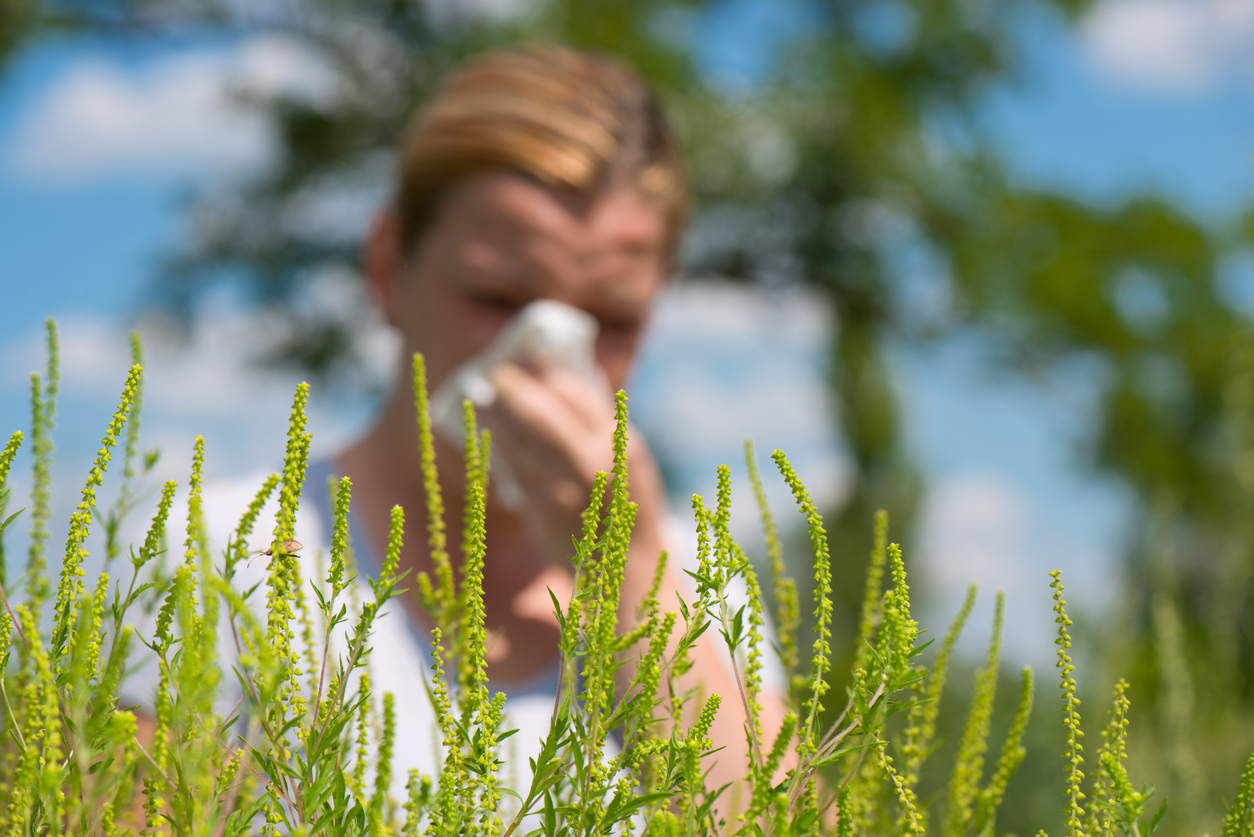We’re not out of the weeds yet for allergy season: ragweed begins flowering in August. If your allergies trigger strong sinus issues—such as an itchy, runny nose and lots of sneezing—you may be at risk for developing a sinus infection. Allergies and sinus infections have many similar symptoms, but they can last longer, and symptoms may be way worse if you’re suffering from both simultaneously. Let’s discuss the relationship between allergies and sinus infections.

What’s the Difference Between Allergies and Sinus Infections?
- Allergies are caused when an allergen—such as pollen, pet dander or dust—enters your body and triggers your immune system. Allergy symptoms usually involve sneezing; an itchy nose, throat and eyes; watery eyes; and a runny nose.
- Sinus infections are bacterial or viral infections in the nasal cavity. Symptoms usually involve facial pressure, discolored mucus and fever.
- Both will cause congestion, postnasal drip and a cough.
How Do Allergies and Sinus Infections Relate to Each Other?
Allergies can cause you to be more susceptible to sinus infections (or sinusitis). Nasal inflammation from allergies blocks proper sinus drainage, leading to mucus buildup in the nasal cavity. Bacteria breed easily in that mucus, and bacteria will lead to sinusitis. Conversely, if you already suffer from chronic sinusitis, allergies may worsen the condition due to inflammation.
How Can I Manage and Prevent Symptoms?
The most effective course of action for allergy-related sinusitis is prevention: manage your allergies early and avoid your allergic triggers altogether. Stay hydrated, maintain a clean environment and monitor the pollen count. However, avoiding triggers completely isn’t easy.
After the onset of allergy symptoms, you can avoid it from developing into sinusitis using decongestants, antihistamines or a nasal spray to keep inflammation down and your sinuses clear.
If sinusitis develops, you can continue using the above-mentioned medications to mitigate symptoms. If symptoms haven’t gone away after ten days or if they suddenly worsen, contact an ENT or medical professional. They may prescribe antibiotics or an oral or topical steroid. In extreme cases, sinus surgery may be needed. Call Spartanburg-Greer ENT & Allergy for more information or to book an appointment.